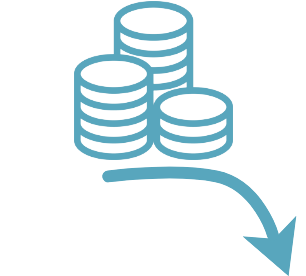Sweden
-
Sweden has the highest participation rate in the EU due to a long tradition of adult education. Swedish folkbildning is the collective name for the activities conducted by the country’s folk high schools and study associations in the form of courses, study circles and cultural activities. Folkbildning is a part of the liberal non-formal educational system. Every year, over a million Swedes participate in folkbildning activities.
Sweden country reports
Sweden 2024-2025
Download category as PDF-
Adult learning must be seen as a necessity in its own right
Sweden has the highest participation rate in adult learning in the EU. However, data shows adults have been underperforming in basic skills since 2018 and pointed out lower participation among older people and people with lower levels of education.
According to EAEA's member, the Folkbildningsrådet (the Swedish National Council of Adult Education), general situation of adult learning and education has significantly deteriorated in recent years. Government funding cuts have affected the adult learning sector in 2024 and 2025, and are expected to continue next year. Since 2020, the regular state grant to folk high schools has remained rather unchanged, except for the additional grants provided during the pandemic (now removed). In 2024, the grant was increased, but this increase was insufficient relative to the inflation rates in 2022 and 2023.
According to the 2023 report on the finances of folk high schools provided by the Swedish National Council of Adult Education, a negative trend is shown over the past years. The number of folk high schools reporting deficits in their educational activities has increased significantly, from 21 schools in 2021 to over 37 schools in 2022, reaching 95 folk high schools (60% of all folk high schools) in 2023.
In addition to funding, discussions are underway regarding the state having a more direct role in the supervision and evaluation of non-formal adult education in study associations and folk high schools, or whether a government agency should take over the responsibility for allocating and monitoring the state subsidy.
Skills dimension
The concept of skills is important and necessary. However, adult learning and education must be seen as a necessity in its own right.
AI in adult learning
The Council is currently using artificial intelligence (AI) to support writing, summarising, and analysing content and data. Although this work is still in its early stages, many organisations within Swedish Folkbildning have identified AI development as a key priority, which includes making AI tools accessible and applicable through adult learning and education activities.
Participation in decision-making
The Swedish National Council of Adult Education is not directly involved in decision-making. The Council is an NGO tasked with distributing national public grants to the adult education associations and folk high schools.
However, the Swedish Adult Education Association (Studieförbunden i samverkan) represents the interests of adult education associations in Sweden. Its task is to strengthen the position of the study associations through communication, cooperation, and analysis of the surrounding world.
During the year, the Swedish Adult Education Association published reports on the situation for music groups, as well as the state of cultural activities during cutbacks. Both organisations contribute to dissemination, networking, and webinars/seminars.
Swedish member's view on the PIAAC results
The Swedish National Council of Adult Education believes the PIAAC results are somewhat representative of the situation in Sweden. These current budget cuts and the fact that the budget has not been adjusted despite high inflation and significantly increased costs affect education and training providers, including folk high schools. For folk high schools, the extra participation slots that were added during the pandemic have also been removed.
These budget cuts may have the greatest impact on smaller municipalities and on groups in need of extra support. This will affect access to education and learning for everyone, regardless of background or place of residence.
Funding of adult education
The funding of adult learning and education in Sweden has significantly deteriorated in 2024-2025, due to governmental funding cuts. In general, the funding sources used are:
- project funding
- programme funding
- operating grants/structural funding
- fees paid by individuals
- formula funding
- contribution paid by employers
- popular movements
Recommendation to the European Commission
Swedish National Council of Adult Education states the need to understand the value of lifelong learning as a piece of the puzzle for community, democracy and equality.
Disclaimer on the participation in education and training data: the data focuses on formal and non-formal education and training, excluding guided on-the-job training. Participation is higher when on-the-job training is included. Data coming from sources such as OECD and the monitoring framework of the European Pillar of Social Rights may differ from the presented data.
Sweden 2023
Download category as PDFSweden 2022
Download category as PDF-
Developments: Additional funding for activities for Ukrainian refugees
-
Challenges and future plans: Falling participation rates during Covid
Posted: 2022-12-07 / Category: Sweden 2022 / Tags: covid-19
Sweden 2021
Download category as PDF-
Developments: Swedish folkbildning continues to be active in policymaking
-
Challenges: Divided impact by Covid
Posted: 2021-12-21 / Category: Sweden 2021 / Tags: outreach participation funding covid-19 digitalisation
Sweden 2020
Download category as PDF-
Developments: Lobbying for special grants for adult education
Posted: 2020-11-23 / Category: Sweden 2020 / Tags: sustainable development funding
2019
Download category as PDF-
Sweden introduction
Posted: 2020-01-09 / Category: 2019 / Tags: non-formal learning vulnerable learners -
Recent development in Sweden
Posted: 2020-01-09 / Category: 2019 / Tags: funding -
Links to EU and international policy in Sweden
Posted: 2020-01-09 / Category: 2019 / Tags: sustainable development non-formal learning formal learning upskilling pathways














































